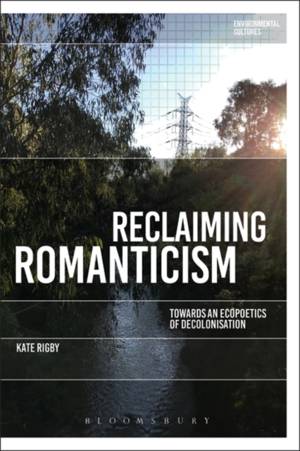
- Afhalen na 1 uur in een winkel met voorraad
- Gratis thuislevering in België vanaf € 30
- Ruim aanbod met 7 miljoen producten
- Afhalen na 1 uur in een winkel met voorraad
- Gratis thuislevering in België vanaf € 30
- Ruim aanbod met 7 miljoen producten
Zoeken
Omschrijving
The earliest environmental criticism took its inspiration from the Romantic poets and their immersion in the natural world. Today the "romanticising" of nature has come to be viewed with suspicion. Written by one of the leading ecocritics writing today, Reclaiming Romanticism rediscovers the importance of the European Romantic tradition to the ways that writers and critics engage with the environment in the Anthropocene era. Exploring the work of such poets as Wordsworth, Shelley and Clare, the book discovers a rich vein of Romantic ecomaterialism and brings these canonical poets into dialogue with contemporary American and Australian poets and artists. Kate Rigby demonstrates the ways in which Romantic ecopoetics responds to postcolonial challenges and environmental peril to offer a collaborative artistic practice for an era of human-non-human cohabitation and kinship.
Specificaties
Betrokkenen
- Auteur(s):
- Uitgeverij:
Inhoud
- Aantal bladzijden:
- 256
- Taal:
- Engels
- Reeks:
Eigenschappen
- Productcode (EAN):
- 9781350243262
- Verschijningsdatum:
- 18/11/2021
- Uitvoering:
- Paperback
- Formaat:
- Trade paperback (VS)
- Afmetingen:
- 156 mm x 234 mm
- Gewicht:
- 358 g

Alleen bij Standaard Boekhandel
+ 138 punten op je klantenkaart van Standaard Boekhandel
Beoordelingen
We publiceren alleen reviews die voldoen aan de voorwaarden voor reviews. Bekijk onze voorwaarden voor reviews.











